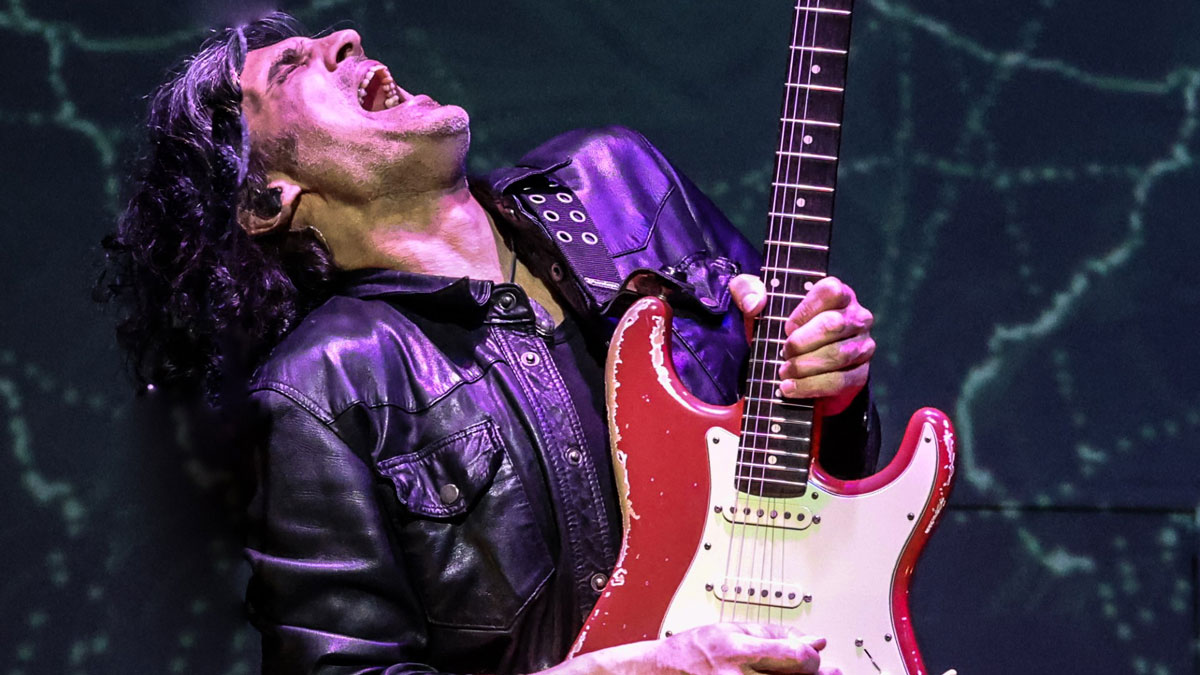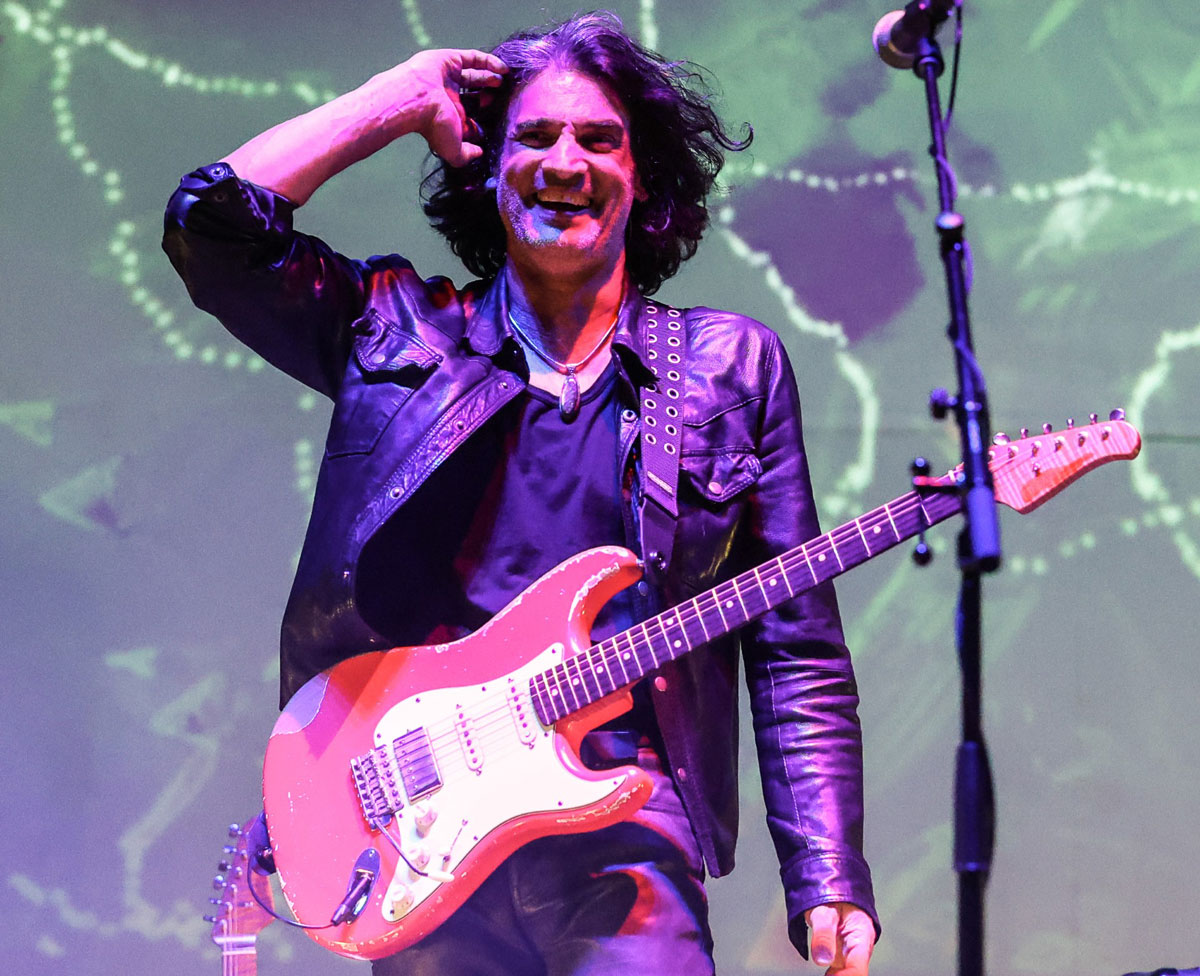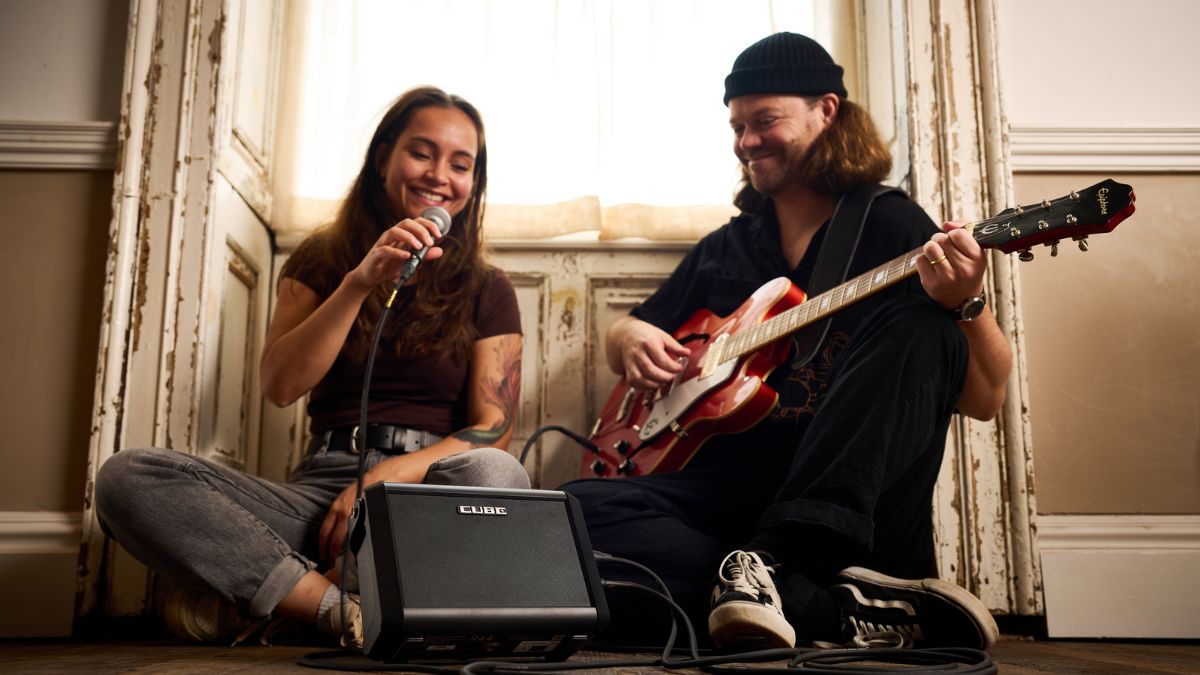Meet the daredevil guitarist taking on Vito Bratta's hair-raising White Lion solos – and winning his hero's approval
Mike Tramp sideman Marcus Nand reveals what it's like to step into the shoes of one of '80s shred's most revered players, how he struck up a friendship with his idol, and what makes Bratta distinct from every other virtuoso

Taking on the iconic solos of one Vito Bratta can't be easy – nor enviable. Yet Marcus Nand is the guitarist tasked with just that.
With a road-worn red Strat in hand, Nand – who has been by former White Lion vocalist Mike Tramp's side for years – gives Bratta's hyper-melodic compositions new life. And seeing as Bratta was one of the toasts of the '80s shred era, it goes without saying that Nand's modern-day mastery is a tidy feat.
"Vito was a massive influence on me as a young guitarist," Nand reveals. "But since then, we've connected, and he's explained his process to me; he's actually a bigger influence and inspiration to me today than he was back then. I understand where his melodic approach comes from now."
Thinking on the nature of being tasked with recreating one of rock music's most reclusive yet iconic shredders, Nand tells us, "It was a little daunting initially, but I think the fact that they are classic songs helped me. We had a clear purpose and target, so the songs being classics, I think, helped in this situation. They're proven songs. We just had to serve them."
To that end, Tramp's latest studio outing, Songs of White Lion, gives Nand his greatest chance to shine yet. After years of sidestepping White Lion reunion rumors – and repeated asks to couple up with Bratta once again – Tramp has dusted off some of White Lion's finest tracks.
Of course, fans worldwide are elated to see White Lion's soaring cuts fly again. But the fact remains that some were initially skeptical of the project as many – if not most – felt that no guitarist could recreate Bratta's magic.
"I don't think recreating what Vito did is possible," Nand laughs. "His iconic solos are mini-compositions within the songs and must be approached that way. It's what the fans want to hear, and anything less wouldn't work. A lot of nostalgia is involved; that's powerful stuff. People don't just listen to music with their ears; they also listen with their entire being. I'm cautious not to disrupt that."
All the latest guitar news, interviews, lessons, reviews, deals and more, direct to your inbox!
Regardless, Tramp is undeterred by the skeptics, saying the Nand is "as good as Vito, and can handle the solos as he did." But if you were to ask Nand, you'd find his take is far humbler: "I'm afraid I have to disagree!"
He continues, "It was a little distracting initially, but now that responsibility inspires me, especially since Vito approves of what I'm doing. But what moves me more is how people have reacted to hearing the solos live. They've expressed a lot of reassuring appreciation. It's all about understanding one's function and serving the music."
Still, one must wonder if Nand's mind wandered toward the same avenues Bratta once strolled down when creating the solos and riffs that would make him a household name. "I am toying with the idea of getting a Steinberger," Nand quips. "But the right opportunity has to come along. I'd use it on a song or two for fun. But Vito's tone didn't play a factor because I knew that even if I used the same gear as him, tone is in the fingers. I can't recreate that."

With the ground rules established, Nand set to work putting his stamp on White Lion history. And considering Nand is an alumnus of the illustrious GIT, you'd think that with practice, the proceeding would be a piece of cake. But as it turns out, that wasn't necessarily the case.
"The Wait solo is challenging but fun because I can feel the anticipation in the room and the gasp of relief and applause when it ends. I think that even non-guitar players can honestly appreciate the complexity of it. Going Home Tonight is brilliant, and the second half of Little Fighter proved very difficult to execute."
"There are so many moments where Vito displayed a Beatles-like understanding of melody," Nand says. "Even if the progression under the solo wasn't there, you could still hear the implied chord changes by the notes he's choosing. It's kind of how jazz players think. That's what sets him apart from his contemporaries."
Cutting to the chase, Marcus Nand did not re-create Vito Bratta's long-loved theatrics. But that's the point – he wasn't trying to. Because Songs of White Lion was never about copying the past; it's about paying homage and giving new life to these tracks through the lens of today. And Marcus Nand is an integral part of that vision.
"When Mike and Vito wrote these songs, many of the fans were either coming of age or going through youthful challenges," Nand continues. "The connection made to music in those periods of self-development is so profound. I didn't want to do anything to change that."
"Vito's solos are mind-blowing," Nand concludes. "And in my conversations with Vito, I've discovered why: he didn't work them out on the guitar; he sang them into a tape recorder and then learned what he sang. That's the key factor. His solos are pure creative compositional expressions. Learning that was a massive eye-opener, and I'll use this approach in the future. Vito was a true innovator."
Andrew Daly is an iced-coffee-addicted, oddball Telecaster-playing, alfredo pasta-loving journalist from Long Island, NY, who, in addition to being a contributing writer for Guitar World, scribes for Bass Player, Guitar Player, Guitarist, and MusicRadar. Andrew has interviewed favorites like Ace Frehley, Johnny Marr, Vito Bratta, Bruce Kulick, Joe Perry, Brad Whitford, Tom Morello, Rich Robinson, and Paul Stanley, while his all-time favorite (rhythm player), Keith Richards, continues to elude him.

